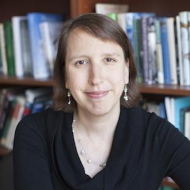
I have a confession to make. I used to be a smoker. Not a social smoker. Not a light smoker. But a regular, good old-fashioned Marlboro-man-style smoker. And not for a year or two. I was a cigarette smoker for fifteen years.
Unlike many other folks who started smoking before its connection to cancer was clear, I started long after this data came to light. I knew that smoking was bad for you. I knew all about the cigarette companies and their allies’ attempts to undermine the science establishing the connection between smoking and ill health. I was an educated consumer. In fact, it was worse than that. I even had a degree in biology. A higher degree in biology: a PhD. I knew that smoking was bad for you on the molecular level. And still I smoked. I smoked until I got sick for a year with repeated bronchial infections. That was enough to convince me to quit.
This is something I think about a lot in my work with climate change education. We know the causes of climate change, we know what their impacts are, and we are telling everyone in as many ways as possible. We even hear from people all the time about how they understand climate change, what its impacts are, and how devastating it will be—and yet there is little action. There is little action, that is, until something terrible happens.
After Typhoon Haiyan hit the Philippines this past month, developing countries went into an international climate change conference demanding action and even reparations for the impacts climate change will bring to their nations. Similarly, after Hurricane Sandy, survivors went to the White House to demand that the US devise an action plan around climate change.
Although both Typhoon Haiyan and Hurricane Sandy cannot be directly connected to climate change, they are the types of storms that are predicted to increase in frequency and ferocity with a changing climate. And they both spurred action, because they turned climate change from something that was going to happen in the future to something that could be happening right now.
All the education in the world wasn’t as powerful as a single devastating event. But is this what we are going to wait for? Aren’t there teachable moments that don’t require destructive, traumatizing, extreme events?
As a former smoker, I understand what it means to ignore science. I get why addictive behaviors lead to bad decisions. I feel for those who see the writing on the wall, and yet do nothing to change. But I also worry. It took me a year of misery to finally decide to put the cigarettes away; what will it take to have the world kick the habits that are responsible for global climate change? Is education going to be enough, or will we need to wait for more extreme events to occur before we can even explore the possibility of action?
I’m hoping that people are going to be a little smarter about climate change than I was about smoking. If we change our behavior now, we just might be able to spare ourselves some misery in the future. If we don’t, I guarantee the effect is going to be a lot worse than bronchitis for a year. Here’s hoping we make the right choice.

